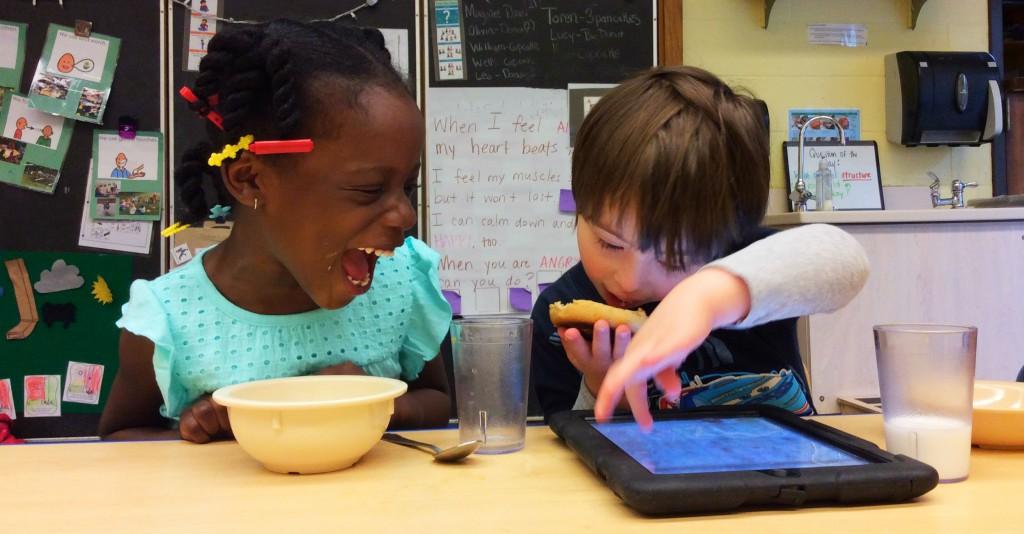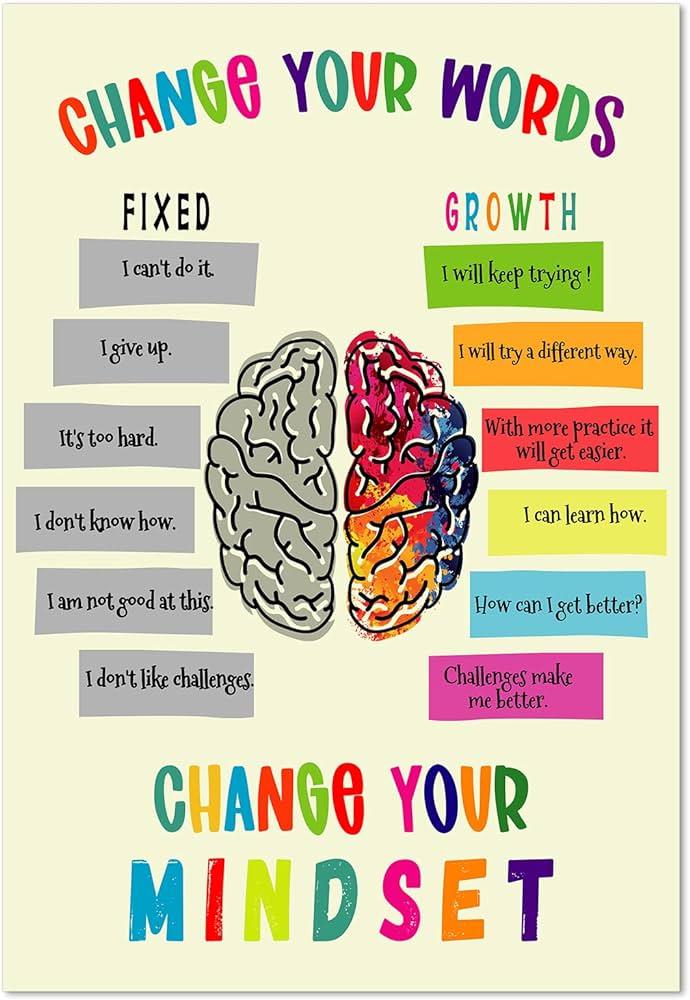Unlock your potential in online courses by collaborating with instructors! Embrace strategies like open communication and active participation. Together, you can create a vibrant learning community that enhances understanding and inspires success. Let’s thrive together!
8+ Strategies for Collaborating with Instructors in Online Courses
In the rapidly evolving landscape of online education, the potential for transformative learning experiences is greater than ever. Yet, the key to unlocking this potential often lies not just in the content we consume, but in the relationships we cultivate with our instructors. Imagine a virtual classroom where collaboration thrives, ideas flow freely, and students feel empowered by their interactions with educators. This vision is not just a dream—it’s entirely achievable. In this article, we will explore 8+ dynamic strategies for collaborating with instructors in online courses, demonstrating how these approaches can enhance your learning journey, foster deeper connections, and ultimately lead to greater success. By embracing these strategies, you can take an active role in your education, turning passive learning into an engaging, interactive experience that inspires both you and your instructors. Join us as we embark on this journey of collaboration, innovation, and empowerment in the world of online learning!
Empowering Your Learning Journey Through Instructor Collaboration
In the dynamic landscape of online education, collaboration with instructors can significantly enhance your learning experience. By actively engaging with your educators, you can unlock new insights, clarify doubts, and foster a deeper understanding of the subject matter. Here are several strategies to cultivate meaningful interactions with your instructors:
- Be Proactive in Communication: Don’t wait for instructors to reach out. Introduce yourself through email or course forums, expressing your enthusiasm for the subject. This can set a positive tone for future interactions.
- Participate in Discussions: Engage in class discussions and forums. Thoughtful contributions not only showcase your interest but also encourage instructors to provide more personalized feedback and insights.
- Utilize Office Hours: Take advantage of virtual office hours. These sessions are designed for you to seek clarification, ask questions, and build rapport with your instructors.
- Seek Feedback: After submitting assignments or projects, ask for specific feedback. Instructors appreciate when students show a desire to improve and refine their skills.
Collaboration extends beyond just communication; it’s about creating a shared educational environment. Here are some additional tactics to foster this connection:
- Group Projects: Collaborate with classmates and involve your instructor in the process. Sharing your progress can lead to valuable insights and additional resources tailored to your project.
- Share Resources: If you discover articles, videos, or tools that enhance your understanding, share them with your instructor. This not only aids your learning but fosters a collaborative spirit.
- Participate in Webinars and Workshops: Many instructors offer extra sessions outside of regular classes. Join these opportunities to deepen your understanding and build a stronger relationship with your educator.
Understanding the impact of instructor collaboration can also be facilitated through structured approaches. Consider the benefits of keeping track of your interactions and feedback:
| Interaction Type | Purpose | Benefits |
|---|---|---|
| Email Correspondence | Clarifying Concepts | Deeper Understanding |
| Discussion Participation | Engagement | Enhanced Learning |
| Project Collaboration | Teamwork Skills | Broader Perspectives |
In essence, empowering your learning journey through collaboration with instructors can transform your educational experience. By cultivating proactive relationships, actively participating, and sharing resources, you not only enhance your knowledge but also contribute to a vibrant academic community. Embrace the journey and watch how your efforts lead to newfound insights and success.

Building Meaningful Connections with Your Online Instructors
Building a strong rapport with your online instructors can significantly enhance your learning experience. To foster these connections, consider employing a variety of strategies that encourage open communication and collaboration. Here are some effective approaches to consider:
- Engage Actively in Discussions: Don’t hesitate to contribute your thoughts during online discussions. Your unique perspective can enrich conversations and demonstrate your commitment to the course.
- Utilize Office Hours: Take advantage of virtual office hours to ask questions and seek guidance. This personal interaction can help you feel more connected and provide valuable insights.
- Share Your Goals: Communicate your academic and career goals with your instructors. They can offer tailored advice and resources that align with your aspirations.
In addition to these strategies, consider using technology to enhance your interactions. For instance, setting up a dedicated communication channel can streamline discussions and foster a community atmosphere. Here’s a simple table illustrating different platforms you might use:
| Platform | Purpose | Benefits |
|---|---|---|
| Slack | Real-time communication | Quick responses, organized channels |
| Google Meet | Face-to-face meetings | Personal interaction, visual cues |
| Discussion Boards | Asynchronous conversations | Thoughtful responses, wider participation |
Another effective method is to provide constructive feedback on course materials and teaching methods. Instructors appreciate insights that can help them improve the learning experience. When you offer feedback, make it specific and actionable. This not only shows that you value their efforts but also opens the door for further dialogue.
- Participate in Group Projects: Collaborating with peers helps you interact with your instructors in a different context. It allows you to demonstrate teamwork skills and gain diverse perspectives.
- Express Gratitude: A simple thank you can go a long way. Acknowledging your instructor’s efforts can strengthen your relationship and make them more invested in your success.
- Be Proactive: If you encounter difficulties, reach out early. Instructors appreciate students who seek help before issues escalate, and this proactive approach can lead to more personalized support.
By integrating these strategies into your online learning experience, you can cultivate meaningful connections with your instructors. These relationships not only enhance your academic journey but also provide a network of support that can benefit your future endeavors.
Harnessing Technology for Effective Communication
In today’s digital age, effective communication is essential for fostering collaboration between students and instructors in online courses. Leveraging technology can significantly enhance the learning experience by bridging gaps and breaking down barriers. Here are some strategies to optimize your interactions:
- Utilize Video Conferencing Tools: Platforms like Zoom or Microsoft Teams allow for face-to-face interaction, making discussions more personal and engaging.
- Engage in Discussion Forums: Participate actively in discussion boards to share insights and questions. This promotes a sense of community and encourages input from all participants.
- Leverage Collaborative Document Tools: Google Docs or Microsoft OneNote enable real-time collaboration on assignments and projects, fostering teamwork and communication.
- Set Up Regular Check-ins: Schedule consistent one-on-one meetings with your instructors to discuss progress, clarify concepts, and receive personalized feedback.
- Use Project Management Software: Tools like Trello or Asana can help organize tasks and timelines, making it simpler to collaborate on group projects.
When utilizing these tools, it’s essential to focus on clarity and intent in your communication. Providing concise, structured information can significantly enhance understanding and reduce misinterpretations.
| Tool | Purpose | Benefits |
|---|---|---|
| Zoom | Live meetings | Enhances engagement and personal connection |
| Google Docs | Collaborative writing | Real-time editing and feedback |
| Trello | Project management | Clear task assignments and progress tracking |
Another valuable approach is to embrace feedback. Constructive criticism is a powerful tool for growth. Providing your instructors with feedback on course materials and teaching methods can open lines of communication and lead to improvements that benefit everyone involved.
remember that patience and persistence are key. Navigating online learning can sometimes be challenging, but maintaining open channels of communication with your instructors will ensure that you receive the support you need. By harnessing the power of technology, you can create a more cohesive and efficient learning environment that fosters success for both students and educators.
Setting Clear Expectations for Collaborative Success
To foster an environment ripe for collaboration, it’s essential to establish clear expectations from the outset. When both instructors and students have a mutual understanding of their roles, the collaborative process becomes smoother and more productive. Here are several key strategies to achieve this clarity:
- Define Roles and Responsibilities: Clearly outline what is expected from each participant. Instructors should specify their teaching methods, availability for questions, and the resources they will provide. Meanwhile, students should understand their responsibilities in terms of participation, communication, and assignment submissions.
- Set Communication Guidelines: Establish preferred communication channels and response times. Whether using discussion boards, email, or video conferencing, knowing when and how to reach out can significantly enhance the collaborative experience.
- Establish Goals: Collaboratively define the objectives of the course. This shared vision helps maintain focus and direction, ensuring that everyone is working towards the same outcomes.
- Develop a Timeline: Create a clear timeline for assignments and projects. Use a shared calendar or timeline tool, allowing everyone to see upcoming deadlines and key milestones.
Moreover, it’s vital to provide a platform for feedback and adjustments. Regular check-ins can help assess progress and recalibrate expectations as needed. Make use of surveys and informal discussions to gauge the collaborative atmosphere and address any issues that arise.
Incorporating a shared document or collaborative space can be incredibly beneficial. This allows all participants to contribute ideas and resources, creating a sense of ownership and investment in the course. Here’s a simple table outlining potential collaborative tools:
| Tool | Purpose | Best For |
|---|---|---|
| Google Docs | Real-time document collaboration | Group projects, brainstorming |
| Trello | Task management and organization | Project planning, deadlines |
| Slack | Instant communication | Quick questions, team updates |
These strategies not only enhance individual accountability but also encourage a culture of transparency and mutual respect. By taking the time to set these expectations, you empower both instructors and students to engage fully in the learning process, leading to greater satisfaction and success in collaborative efforts.

Creating a Supportive Learning Environment Together
Creating a supportive learning environment in online courses is essential for fostering collaboration between students and instructors. By adopting proactive strategies, both parties can thrive in this digital landscape. Here are some effective approaches to enhance your educational experience.
- Establish Open Communication Channels: Utilize various platforms such as discussion forums, chat rooms, or email to encourage open dialogue. Instructors should be approachable and responsive, fostering a sense of trust and connection.
- Set Clear Expectations: At the beginning of the course, collaboratively outline learning objectives, assessment criteria, and participation guidelines. This shared understanding can enhance accountability and motivation.
- Encourage Peer Interaction: Promote group work and peer reviews to facilitate collaboration among students. This not only builds community but also enhances learning through diverse perspectives.
- Utilize Multimedia Resources: Incorporate videos, podcasts, and interactive content into the curriculum. These tools can cater to various learning styles and engage students more effectively.
- Solicit Feedback Regularly: Instructors should actively seek input from students regarding course content and delivery. This feedback loop can lead to ongoing improvements and a more tailored learning experience.
In addition to these strategies, establishing a sense of belonging is crucial. Instructors can create personalized learning experiences by recognizing individual achievements and encouraging students to share their insights and backgrounds. This inclusivity nurtures a supportive atmosphere where all voices are valued.
| Strategy | Benefits |
|---|---|
| Open Communication | Builds trust and clarity |
| Clear Expectations | Enhances accountability |
| Peer Interaction | Fosters community |
| Multimedia Resources | Cater to diverse learning styles |
| Regular Feedback | Encourages continuous improvement |
Lastly, celebrating successes—whether big or small—can energize the learning environment. Instructors can highlight achievements in class announcements or through virtual badges, reinforcing positive reinforcement and motivation among students. Together, by embracing these practices, we can create a dynamic and engaging online learning experience that uplifts everyone involved.
Leveraging Feedback to Enhance Your Online Experience
In the ever-evolving landscape of online learning, feedback serves as a critical component in refining your educational journey. Engaging with your instructors and utilizing their insights can significantly improve your online experience. Here are some strategies to harness feedback effectively:
- Request Clarifications: Don’t hesitate to ask for further explanations on assignments or concepts that seem unclear. This not only shows your willingness to learn but also allows your instructor to tailor their teaching methods to better suit your needs.
- Participate Actively in Discussions: Engaging in forum discussions encourages a dynamic exchange of ideas. By sharing your thoughts and asking questions, you create opportunities for constructive feedback from instructors and peers alike.
- Utilize Office Hours: Make the most of your instructor’s office hours. This is a prime opportunity to receive personalized feedback and guidance, addressing any specific challenges you may face in the course.
- Be Open to Critique: Embrace feedback, whether it’s positive or corrective. Understanding your strengths and areas for improvement is crucial for your growth, so approach feedback with a growth mindset.
- Set Goals Together: Collaborate with your instructor to establish clear, achievable goals for your learning. This not only provides a roadmap for your progress but also invites ongoing feedback that is aligned with your objectives.
Incorporating feedback into your routine can transform the way you approach your coursework. Consider creating a Feedback Journal where you can document the insights you receive and reflect on them regularly. This practice can help you track your progress and identify recurring themes in the feedback that you might want to address.
Additionally, when you receive feedback on assignments, take the time to analyze it critically. Here’s a simple table to help you categorize the feedback you receive:
| Feedback Type | Action Needed | Deadline for Improvement |
|---|---|---|
| Content Clarity | Revise key sections | One week |
| Formatting Issues | Adjust layout | Three days |
| Engagement Strategies | Incorporate multimedia | Next submission |
By systematically addressing feedback and planning your improvements, you create a continuous loop of learning and enhancement. In doing so, you not only elevate your own academic performance but also foster a more enriching educational environment for all involved. Remember, every piece of feedback is a stepping stone towards mastering your subjects and achieving your educational goals.

Engaging in Active Participation to Foster Collaboration
Active participation is the cornerstone of effective collaboration in online courses. When students engage meaningfully with instructors, they not only enhance their own learning experiences but also contribute to a vibrant educational community. Here are some strategies to encourage this dynamic exchange:
- Frequent Check-Ins: Regularly reach out to instructors with questions or updates. This demonstrates your commitment to the course and encourages them to provide personalized feedback.
- Utilize Discussion Boards: Engage in discussions on forums by sharing insights, asking thought-provoking questions, and responding to peers. Your contributions can spark deeper conversations and enrich the learning atmosphere.
- Collaborative Projects: Propose group assignments or study sessions with classmates. This not only fosters teamwork but also allows instructors to see your leadership abilities in action.
- Feedback Loops: Actively seek feedback from instructors on assignments and projects. Show that you value their insights and are willing to make adjustments based on their suggestions.
Moreover, technology can be leveraged to enhance collaboration:
- Video Conferencing: Use platforms like Zoom or Google Meet to hold virtual office hours or group meetings. This can provide a more personal touch and facilitate better communication.
- Shared Documents: Utilize tools like Google Docs or collaborative whiteboards to work on projects together. This fosters a sense of community, even in a virtual space.
| Strategy | Benefits |
|---|---|
| Frequent Check-Ins | Builds rapport and opens channels of communication |
| Utilize Discussion Boards | Encourages active engagement and diverse viewpoints |
| Collaborative Projects | Enhances teamwork skills and relationship building |
| Feedback Loops | Refines skills through constructive criticism |
| Video Conferencing | Personalizes interactions and strengthens connections |
| Shared Documents | Facilitates real-time collaboration and sharing |
By employing these strategies, students can cultivate a collaborative environment that benefits everyone involved. Remember, effective collaboration is a two-way street; when you actively participate, you not only elevate your own learning but also inspire your instructors to invest in your educational journey.

Utilizing Virtual Office Hours for Personalized Guidance
Engaging with instructors during virtual office hours can significantly enhance your learning experience in online courses. These designated times offer a unique opportunity to receive tailored guidance that addresses your specific questions and challenges. By taking advantage of these sessions, you can transform your academic journey into a more interactive and supportive environment.
To make the most out of virtual office hours, consider the following strategies:
- Prepare Ahead: Before attending, jot down your questions or topics you’d like to discuss. This preparation ensures that you utilize the time effectively and leaves a positive impression on your instructor.
- Be Punctual: Arriving on time shows respect for your instructor’s schedule and maximizes your own time for discussion. It demonstrates professionalism and commitment to your learning.
- Ask Specific Questions: Instead of vague inquiries, focus on specific aspects of the course material or assignments. This clarity helps your instructor provide precise feedback and guidance.
- Practice Active Listening: During the session, be attentive to your instructor’s insights. Taking notes can help you retain important information and show your engagement.
- Follow Up: After the meeting, consider sending a quick thank you message, summarizing key points discussed. This follow-up reinforces your commitment to your studies and can lead to more fruitful discussions in the future.
Utilizing virtual office hours not only fosters a stronger connection with your instructors but also positions you as an active participant in your education. This proactive approach can build a rapport that may lead to additional mentorship opportunities, personalized advice, and even collaborative projects.
Here’s a simple table to illustrate the potential outcomes of effective engagement during virtual office hours:
| Engagement Strategy | Potential Outcome |
|---|---|
| Preparation | Focused discussions |
| Punctuality | Respect and professionalism |
| Specific Questions | Targeted feedback |
| Active Listening | Better retention of information |
| Follow-Up | Strengthened relationships |
By integrating these practices into your routine, you not only enrich your own educational experience but also contribute to a culture of collaboration and support. Remember, your instructors are there to help you succeed, and making the most of virtual office hours can be a pivotal step in achieving your academic goals.

Establishing a Collaborative Learning Community
Creating a learning environment where both instructors and students can thrive requires intentional strategies that foster collaboration and community. To establish this kind of atmosphere, it’s crucial to actively engage with instructors and leverage their expertise while sharing your own insights.
One effective way to build a collaborative learning community is through regular communication. Set up channels where you can easily exchange ideas and feedback. Consider utilizing platforms like Slack or Microsoft Teams for ongoing discussions. This helps to create a sense of unity and ensures that everyone feels included in the learning process.
Another powerful strategy is to co-create course materials. Collaborate with instructors to develop resources that reflect the collective knowledge of the group. This can include creating shared Google Docs or collaborative presentations where both instructors and students contribute content. Not only does this enhance engagement, but it also empowers students to take ownership of their learning experience.
Organizing peer review sessions can also strengthen the collaborative community. By allowing students to provide constructive feedback on each other’s work, you foster a culture of support and continuous improvement. Instructors can guide these sessions by providing clear criteria, ensuring that feedback is both relevant and beneficial.
Additionally, leveraging technology tools can greatly enhance collaboration. Use platforms like Padlet or Miro for brainstorming sessions, enabling everyone to contribute ideas visually. These tools can break down barriers and encourage diverse perspectives, enriching the learning experience for all participants.
| Strategy | Description |
|---|---|
| Regular Communication | Establish platforms for ongoing discussion and feedback. |
| Co-Creation of Materials | Work together to develop resources and course content. |
| Peer Review Sessions | Facilitate constructive feedback among peers. |
| Technology Tools | Utilize collaborative platforms for brainstorming and idea sharing. |
Lastly, promoting an inclusive culture is essential. Encourage students to share their diverse backgrounds and experiences, as this enriches the learning environment. Instructors can play a pivotal role by actively inviting participation and recognizing the value of every voice in the community. This not only enhances collaboration but also builds a sense of belonging and respect among participants.

Embracing Diverse Perspectives to Enrich Your Education
In the realm of online education, collaboration with instructors is crucial for personal growth and academic success. Engaging with diverse perspectives not only enhances your understanding of the material but also fosters a more inclusive learning environment. By actively seeking out and integrating varied viewpoints, you can elevate your educational experience and develop a richer comprehension of the subject matter.
One effective approach is to initiate open dialogues with your instructors. Don’t hesitate to ask questions or express your thoughts on the course content. This encourages a two-way communication channel that can lead to deeper insights and a more dynamic learning atmosphere. Instructors appreciate students who engage with the material and challenge ideas, which can inspire them to provide additional resources or perspectives.
Another strategy is to leverage peer feedback. Collaborating with fellow students allows you to encounter different interpretations and experiences related to the course material. Form study groups or participate in discussion forums where you can share your ideas, critique each other’s work, and learn from the diverse backgrounds of your peers. This collective knowledge can illuminate aspects of the subject you might not have considered on your own.
Consider utilizing multimedia resources to expand your understanding further. Instructors often recommend various articles, videos, podcasts, and other materials that present diverse viewpoints. By engaging with these resources, you can gain a broader perspective on the topics discussed in class, enhancing your ability to synthesize information from multiple angles.
| Strategy | Description |
|---|---|
| Open Dialogues | Initiate conversations with instructors to clarify and discuss course material. |
| Peer Feedback | Engage with classmates to share insights and critique work collaboratively. |
| Multimedia Resources | Utilize recommended articles, videos, and podcasts for broader understanding. |
Moreover, cultural exchanges can greatly enrich your learning experience. If your online course has a global audience, take the opportunity to learn from classmates hailing from different cultural backgrounds. Sharing experiences and perspectives from various cultures not only enhances your understanding of course material but also prepares you for a more interconnected world.
don’t underestimate the power of reflective practice. After engaging with your instructors and peers, take the time to reflect on what you’ve learned from their diverse perspectives. Journaling or blogging about these experiences can help consolidate your learning and provide clarity on how different viewpoints have shaped your understanding.

Incorporating Peer Interactions to Strengthen Instructor Ties
Creating a supportive online learning environment often hinges on the strength of peer interactions. By fostering connections among students, instructors can enhance their relationships with learners and create a community that thrives on collaboration and shared knowledge. Here are some effective strategies to leverage peer interactions for building stronger ties with instructors:
- Discussion Forums: Implement dedicated discussion threads where students can ask questions and share insights. Instructors can actively participate, addressing concerns and guiding conversations, thus reinforcing their accessibility.
- Peer Review Assignments: Encourage students to review each other’s work. This not only builds rapport among peers but also allows instructors to provide personalized feedback, showcasing their commitment to each student’s growth.
- Group Projects: Assign collaborative projects that require students to work together. Instructors can facilitate these groups, allowing them to connect with students in a more dynamic, hands-on manner.
- Virtual Study Groups: Create opportunities for students to form study groups, with instructors occasionally joining to offer insights or clarify complex topics. This interaction fosters a sense of community and support.
- Social Media Integration: Utilize platforms like Facebook or Discord to create informal spaces for students to interact. Instructors can participate as members, sharing resources and engaging in casual conversations to deepen their connection with learners.
To further enhance these strategies, consider establishing a system for recognizing and rewarding peer interactions. This could include a point system or badges that acknowledge collaborative efforts, making students feel valued for their contributions. Here’s a simple table outlining potential rewards:
| Reward Type | Description |
|---|---|
| Collaboration Badges | Digital badges that students can display on their profiles for active participation. |
| Extra Credit | Points awarded to students who contribute significantly to peer interactions. |
| Featured Student Spotlights | Highlight students who excel in collaboration during course announcements. |
Incorporating these practices not only enriches the learning experience but also helps instructors become more approachable and engaged. By actively participating in peer interactions, instructors break down barriers and cultivate an environment of trust and mutual respect. This, in turn, encourages students to take ownership of their learning and fosters a vibrant academic community.

Cultivating a Growth Mindset in Online Learning Partnerships
In the dynamic world of online learning, fostering a growth mindset is essential for both instructors and learners. When instructors embrace the notion that abilities can be developed through dedication and hard work, they set a powerful example for students. This philosophy not only enhances the learning experience but also encourages resilience, creativity, and collaboration.
To cultivate this mindset in online course partnerships, consider implementing the following strategies:
- Encourage Open Communication: Create channels for honest feedback and dialogue. Regular check-ins can empower both instructors and students to express challenges and successes, reinforcing a culture of growth.
- Set Collaborative Goals: Work together to establish clear, achievable objectives. This fosters a shared sense of purpose and motivates all parties to strive for continuous improvement.
- Celebrate Effort, Not Just Results: Acknowledge the hard work and persistence shown by both instructors and students, even when outcomes aren’t perfect. This reinforces the idea that effort is a key component of success.
- Implement Reflective Practices: Encourage instructors and students to reflect on their learning experiences regularly. Reflection fosters deeper understanding and identifies areas for growth.
| Strategy | Description |
|---|---|
| Peer Collaborations | Foster partnerships among students for shared learning experiences. |
| Resource Sharing | Encourage instructors to share materials and best practices. |
| Growth-Focused Assessments | Use assessments that promote learning from mistakes. |
In addition to these strategies, fostering a culture that embraces challenges as opportunities is vital. Provide opportunities for instructors to experiment with new teaching methods or technologies without the fear of failure. When the course environment normalizes taking risks and learning from them, everyone benefits.
Lastly, remember that cultivating a growth mindset is an ongoing process. Celebrate milestones along the way and encourage a community where learning is seen as a journey. Investing in these partnerships with a growth-oriented perspective can transform the online learning experience into one that is not just informative, but truly transformative.

Celebrating Collaborative Achievements and Milestones
The magic of collaboration in online courses often leads to extraordinary outcomes. When instructors and students unite their strengths, remarkable achievements unfold. By implementing effective strategies, participants not only enhance their learning experiences but also contribute to a rich tapestry of knowledge and creativity.
One of the most powerful aspects of collaboration is the opportunity to share diverse perspectives. Creating peer review groups allows students to provide constructive feedback on each other’s work, which not only aids in personal growth but also fosters a sense of community. As students engage in open dialogue, they learn to appreciate different viewpoints, paving the way for innovative solutions and ideas.
Another impactful strategy is the use of collaborative digital tools. Platforms like Google Docs, Trello, and Padlet serve as virtual meeting spaces where ideas can flourish. By embracing these technologies, both instructors and students can break down geographical barriers and create an inclusive environment where contributions from everyone are valued.
| Collaboration Tool | Benefits |
|---|---|
| Google Docs | Real-time editing and feedback |
| Trello | Organizes tasks and projects visually |
| Padlet | Interactive sharing of ideas and resources |
Moreover, establishing clear communication channels is vital for successful collaboration. Utilizing discussion forums, chat apps, or dedicated email threads ensures that everyone stays informed and engaged. Instructors can set the tone by actively participating in these discussions, which encourages students to express themselves freely and confidently.
Lastly, it is essential to celebrate each collaboration milestone. Recognizing achievements, whether big or small, builds morale and motivates participants to strive for excellence. Sharing success stories within the course community not only validates efforts but also inspires future collaborations, creating a culture of continuous improvement and collective growth.

Transforming Challenges into Opportunities for Growth
which can enhance collaborative learning.
Utilize Office Hours: Make the most of your instructor’s availability. Office hours are a valuable opportunity to discuss course materials in-depth, seek assistance on challenging topics, or gain insights on your performance. This personalized interaction can significantly enhance your learning experience and provide clarity on any confusing aspects of the curriculum.
Foster a Supportive Community: Building a network with your classmates is essential. Create online forums or social media groups where you can share experiences, resources, and encouragement. This collective support not only fosters a sense of belonging but also encourages all members to thrive academically and emotionally in the online learning environment.
Celebrate Milestones: Acknowledge your achievements and those of your peers. Whether it’s completing a tough assignment, mastering a new concept, or receiving positive feedback from an instructor, celebrating these moments boosts morale and motivation. It also reinforces the idea that every challenge conquered contributes to your growth journey.
Frequently Asked Questions (FAQ)
Q&A: 8+ Strategies for Collaborating with Instructors in Online Courses
Q1: Why is collaboration with instructors so crucial in online courses?
A: Collaboration with instructors is vital because it enhances the learning experience, creates a sense of community, and fosters deeper understanding. When students actively engage with their instructors, they benefit from personalized feedback and guidance, which can significantly improve their academic performance. Moreover, collaborative interactions can inspire students to take ownership of their learning journey, making education a richer and more rewarding experience.
Q2: What is the first strategy for effective collaboration?
A: The first strategy is to establish open communication. Reach out to your instructor early in the course to express your goals and expectations. Whether it’s through emails, discussion boards, or virtual office hours, maintaining an open line of communication sets the stage for a successful partnership. This proactive approach shows your commitment and encourages your instructor to engage with you more meaningfully.
Q3: How can I leverage technology to collaborate with my instructor?
A: Utilize various digital tools that facilitate collaboration, like discussion forums, collaborative documents, and video conferencing platforms. For instance, Google Docs allows you to work together in real-time on projects or assignments. By embracing these technologies, you not only streamline communication but also create opportunities for creative collaboration that can elevate your learning experience.
Q4: What role does participation play in collaboration?
A: Participation is key! Actively engaging in class discussions, asking questions, and contributing your thoughts can significantly enhance the collaborative dynamic. When you participate, you not only enrich your own learning but also encourage your peers and instructors to share their insights. This creates a vibrant learning environment where everyone feels valued and motivated.
Q5: How can I provide constructive feedback to my instructor?
A: Providing constructive feedback is essential for mutual growth. Share your thoughts on what’s working well and what could be improved, but do so respectfully and thoughtfully. You might say something like, “I appreciate the detailed feedback on my assignments; it really helps me improve. Perhaps we could have more examples in our discussions to better illustrate complex topics.” This approach fosters a productive dialogue that can enhance the course for everyone.
Q6: Are there specific times when collaboration is most effective?
A: Absolutely! Collaboration is most effective during key milestones, such as project kick-offs, mid-term assessments, and final evaluations. These are pivotal moments when feedback and guidance can make all the difference. Additionally, forming study groups during these times encourages collaboration not only with instructors but also with classmates, creating a comprehensive support system.
Q7: What if I struggle with a particular topic?
A: If you find yourself struggling, don’t hesitate to reach out to your instructor for help. They are there to support your learning journey. Be honest about your challenges and ask for additional resources or clarification. This not only shows your commitment to learning but also opens up opportunities for tailored instructional support.
Q8: How can I build a rapport with my instructor?
A: Building rapport with your instructor is about connection. Share your interests, academic goals, and even challenges. Personalizing your interactions creates a more comfortable environment for collaboration. Remember, instructors are passionate about teaching and appreciate students who are engaged and genuinely interested in the subject matter.
Q9: What is the ultimate takeaway from collaborating with instructors in online courses?
A: The ultimate takeaway is that collaboration transforms your educational experience. By actively engaging with your instructors and utilizing these strategies, you not only enhance your learning but also cultivate essential skills for the future. Remember, education is a partnership, and your initiative can spark a chain reaction of growth, inspiration, and achievement. Embrace the journey and watch how collaboration can empower you to reach new heights!
Insights and Conclusions
In an age where education transcends traditional boundaries, the power of collaboration between students and instructors in online courses cannot be understated. As we’ve explored the eight transformative strategies to enhance this partnership, it’s clear that the journey toward academic success is not a solitary one. By actively engaging with your instructors, embracing feedback, and fostering an open line of communication, you are not just enhancing your learning experience—you’re enriching the entire educational ecosystem.
Remember, every interaction is an opportunity for growth. Take the initiative to implement these strategies and watch as your online learning transforms into a dynamic exchange of ideas and insights. Your instructors are not just facilitators; they are partners in your educational journey, eager to guide you toward your fullest potential.
So, step forward with confidence. Embrace collaboration, cultivate connections, and inspire those around you to do the same. Together, you can create a vibrant learning community that thrives on shared knowledge and mutual respect. The future of education is bright—let your voice be heard and your impact felt. The best is yet to come!





